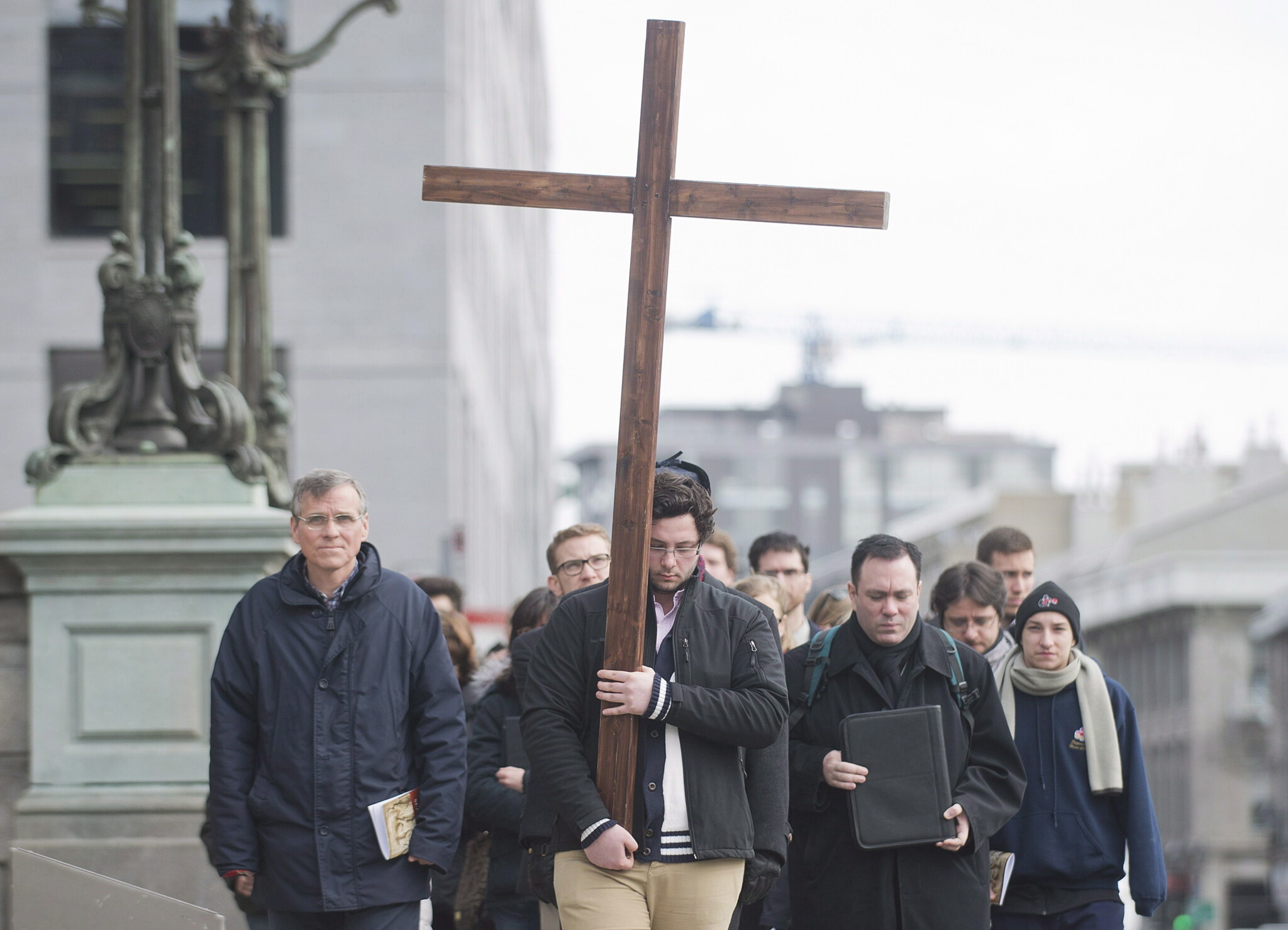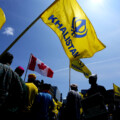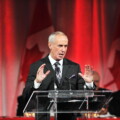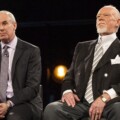The incoming U.S. Vice President-elect JD Vance waded into a very Canadian controversy last week. Defending his old friend and Conservative MP Jamil Jivani from progressive critics, Vance said, “Canada has seen a number of church burnings in recent years thanks to anti-Christian bigotry…shame on journalists who refuse to see what’s obvious.”
It was a sharp interjection from an American leader, but sometimes foreigners see our country more clearly than we can see it ourselves. Jivani had recorded a video to collect signatures for a petition against anti-Christian bigotry, which prompted all the usual suspects in progressive media to deny there’s any such thing in Canada, and that we should be ashamed for even thinking there was.
Are they right? Not really. Their basic argument is that Christians have basic Charter protections and that many of our institutions reflect our Christian past, including some public holidays and schools in some provinces. The trouble with this is that it doesn’t grasp the particular nature of the anti-Christian bigotry that concerns people like Jivani, Vance, and, well, me.
Public discourse about Christianity in Canada is increasingly characterized by a sort of intimate disdain. Yes, our country has a largely Christian heritage, and that’s reflected in our institutions, including some schools and public holidays. But increasingly, a critical mass of our leadership class has shaken off the theistic aspects of the Christian faith while maintaining and extending its moral teachings with a missionary zeal. And because they are only one or two generations removed from active, practicing Christianity, they feel entitled to be especially critical of the churches that they feel have let them down.
The best example is the moral panic of June and July 2021, in which the whole sorry history of colonialism was pinned on the churches for their role in the residential school system. To be clear, the schools were a mistake, a stain on our nation’s history, and the churches bear a good part of the responsibility for them, a case well-made in the pages of The Hub. Church leaders have rightly apologized for their participation in sinful aspects of the colonial project. Jesus’ own response to those who abuse children is instructive: “It would be better for you if a millstone were hung around your neck and you were thrown into the sea than for you to cause one of these little ones to stumble”.
But in their zeal to tell a good story with the right villain, our media made claims that went far beyond the facts, notably that there were mass graves at former residential schools around the country. The reporting created in the public mind a ghoulish, Holocaust-like image of priests and nuns murdering children in cold blood and throwing their bodies in pits. As journalist Terry Glavin has shown, there is no real evidence for this, but it’s an image that sticks in the mind and gets lots of clicks, even as it risks traumatizing and misinforming a nation. The real story, that many children died at schools they should not have been at from diseases they should not have caught, is bad enough.
The false image, however, was enough to prompt a wave of arson attacks and vandalism against churches around the country as hate crimes against Christians rose sharply. People were outraged by what they thought they knew. The grandmas at the church I attended were terrified. They asked for police protection and were granted it. Meanwhile, the man behind Trudeau, Gerry Butts, tweeted darkly that based on his own experience as an altar boy at a Catholic church in the 1980s, he thought the attacks were understandable. The prime minister said something similar a few weeks later. I doubt they were the only ones who felt that way. For goodness’ sake, I felt that way, and it took me prayer, reflection, and lots of reading to start coming to terms with the anger and guilt I felt on behalf of my ancestors in the faith.
As a Christian, it’s the intimate disdain of men like Butts and Trudeau that worries me. They have kept a sense of good and evil and maintained an instinct to side with the victim rather than the empire, but have lost a theology of forgiveness and the humbling sense that we are all fallen. They are personally close enough to a Christian past that they feel entitled to go after churches and those who still believe, especially those who believe in the more controversial aspects of the faith.
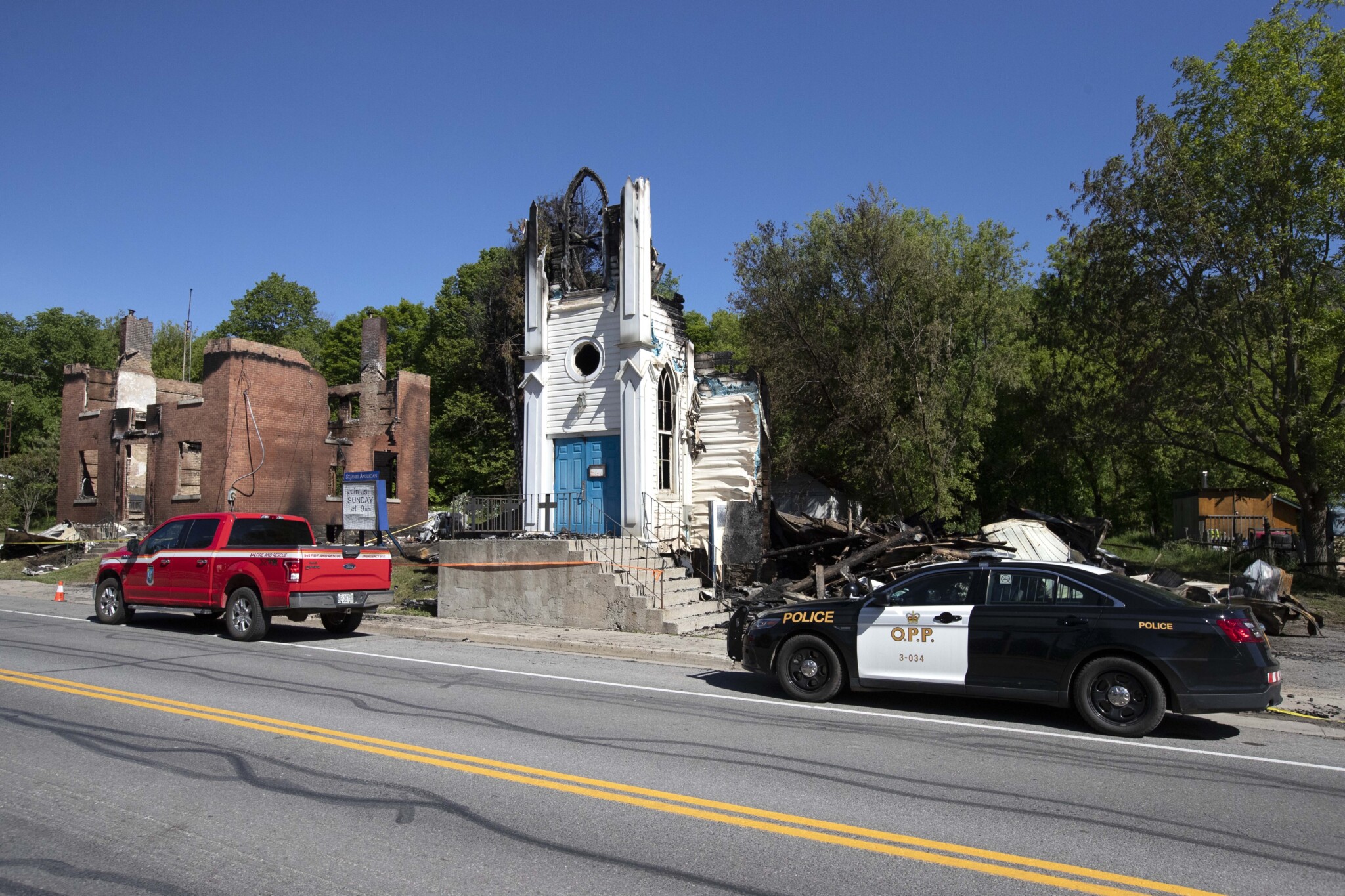
Police and fire chief vehicles stand beside the burned house and the church in Parham, Ontario, on June 8, 2020. Lars Hagberg/The Canadian Press.
What does that look like? It’s undermining conscience rights of doctors and nurses. It’s trying to force Christian institutions to participate in euthanasia. It’s removing or undermining choices for parents to send their children to religious schools. It’s deciding that restaurant reopenings are more important than allowing religious services during the pandemic. It’s repeatedly seeking to use core Christian moral teachings as political wedge issues, trying to force practicing Christians out of public life. It’s fearmongering about the very idea that a politician might meet with Evangelicals. It’s trying to erase all practices and symbolism that reflect Canada’s religious heritage. It’s framing almost every story in ways that make Christians look as bad as possible. It’s accepting that church burnings and vandalism will now just be part of Canadian culture and society. It’s striking that such policies rarely come directly from those who practice another religion; they come, in a sense, from people who just left the pew.
It’s hard to predict the long-term effects of this type of disdain. On the one hand, it could prove purifying for churches in Canada. In the past, joining the clergy or being known for your devotion was a good way to enhance your social standing; it’s just the opposite today. Scripture warns Christians against getting too high and mighty. Enforced humility and meekness might be good for us.
Having said that, a dechristianizing culture is not likely to be one that’s good for the weak and vulnerable. As we saw in the approach our country took to assisted suicide, our changing attitudes are not just toward the sanctity of life; they’re also towards how seriously we should take the concerns of disabled people. As negative sentiments toward religion writ large increase, our less religious society is not open to the idea that the worries of the weak about coercion should do anything to limit the self-determination of the strong.
While we shouldn’t over-index for online chatter, anyone who spends time on X knows there’s good reason to be worried about how a society less informed by the Gospels might handle coming debates about race and immigration. As the New York Times columnist Ross Douthat put it in the run-up to the Trump era: “If you dislike the religious right, wait till you meet the post-religious right.” Without a sense of God, we risk forgetting our common humanity, at least after a generation or two.
Everyone’s life of faith—or lack of faith—is different. But Canada is a place where Christian faith is particularly contentious, not in spite of but because of its central role in our collective past. How we address the intimate disdain that many of our leaders hold for it will affect the type of society we build together, believers or non-believers, but citizens all. Acknowledging our religious roots with less disdain, more humility, and perhaps even a bit of gratitude could help guide us all toward a more peaceful future.
